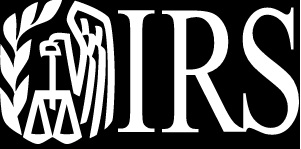 The Section 121 Exclusion is an IRS rule that allows you to exclude from taxable income a gain of up to $250,000 from the sale of your principal residence. A couple filing a joint return gets to exclude up to $500,000.
The Section 121 Exclusion is an IRS rule that allows you to exclude from taxable income a gain of up to $250,000 from the sale of your principal residence. A couple filing a joint return gets to exclude up to $500,000.
To get the exclusion a taxpayer must own and use the home as their main residence for a period adding up to two years out of the five years before it is sold. Verify the date(s) of your occupancy of the home with your tax advisor based on past tax returns.
The Section 121 Exclusion, also known as the principal residence tax exclusion:
- It lets people who sell their primary homes put the proceeds from the sale into another home without having to pay taxes on the gain.
- There is no requirement that proceeds from a home sale be used to purchase another home in order to claim the exclusion.
- U.S. taxpayers also qualify for the principal residence tax exclusion if the principal residence is outside the United States.
What type of sales do not qualify for Section 121?
- The exclusion is tailored to deny similar tax benefits to investors who buy homes for rental.
- People who sell secondary residences such as vacation homes cannot use the exclusion.
The main restriction on using the Section 121 exclusion is the ownership and use test.
- This requires that the taxpayer has owned the home and used it as a primary residence for at least 24 months out of the previous 60 months. The 60-month period ends on the date the home is sold. The 24 months do not have to be consecutive.
- For instance, a taxpayer could qualify for the exemption if the taxpayer lived in the home for a year, moved out for three years, and then used it again as a primary residence the last year. Also, the ownership and use tests can be met during different two-year periods.
- A homeowner who uses the home for business purposes, such as rental property, for part of the preceding five years would only be able to excluded a portion of the gain, however. The amount of the gain that can be excluded is determined by the proportion of time the home was used for business purposes. For a taxpayer who lived in a home for two of the five years and rented it for three of the five years, for example, three-fifths of the gain on the sale could not be excluded. That portion of the gain would be treated as income.
- Another limitation on the exclusion is that the taxpayer can only use it every two years. If a taxpayer sold a home and took the exclusion at any time during the two years before the date of the home’s sale, the exclusion wouldn’t apply.
Special Exemptions for change of employment and health issues:
- There are some special cases when a home seller can use the exclusion test more liberally. For instance, when a home seller has had a change of employment or had health issues or experienced other unforeseen circumstances.
- There is also a specific provision for taxpayers or their spouses who are serving in the military and have been stationed for more than 90 days more than 50 miles from home or ordered to live in government housing. In these cases, the taxpayer can elect to suspend the usual five-year period for up to 10 years. A similar exemption applies to taxpayers or spouses in the government foreign service or intelligence community.
Summary: A home that has been a principal residence for 2 out of the last 5 years and was not a rental for any of that period can qualify for significant tax reduction using the Section 121 Exclusion
- Section 121 allows the excluding from income up to $250,000 for an individual taxpayer and $500,000 for a couple filing jointly. The exclusion is only for people who own and use a property as their primary residence for two of the five years before the sale.
- Section 121 cannot be used by real estate investment properties, rental houses, second and vacation homes, or business property.
- Section 121 can only be used once every two years.
Keep in mind, the amount of capital gains which exceed the Section 121 exclusion will be taxed by both the IRS and the State of California.
- If you have a highly appreciated home where the gain is well above the Section 121 exclusion, it is essential that you discuss your tax situation with your CPA to consider all the alternatives which may defer or eliminate capital gains taxes.
- I have additional articles on my real estate blog that discuss your alternatives. Here is one which outlines some of your choices: https://scotcampbell.com/2022/12/08/capitalgains
For additional information please contact your tax expert and review IRS guidance: https://www.irs.gov/taxtopics/tc701


 Facebook
Facebook
 X
X
 Pinterest
Pinterest
 Copy Link
Copy Link
